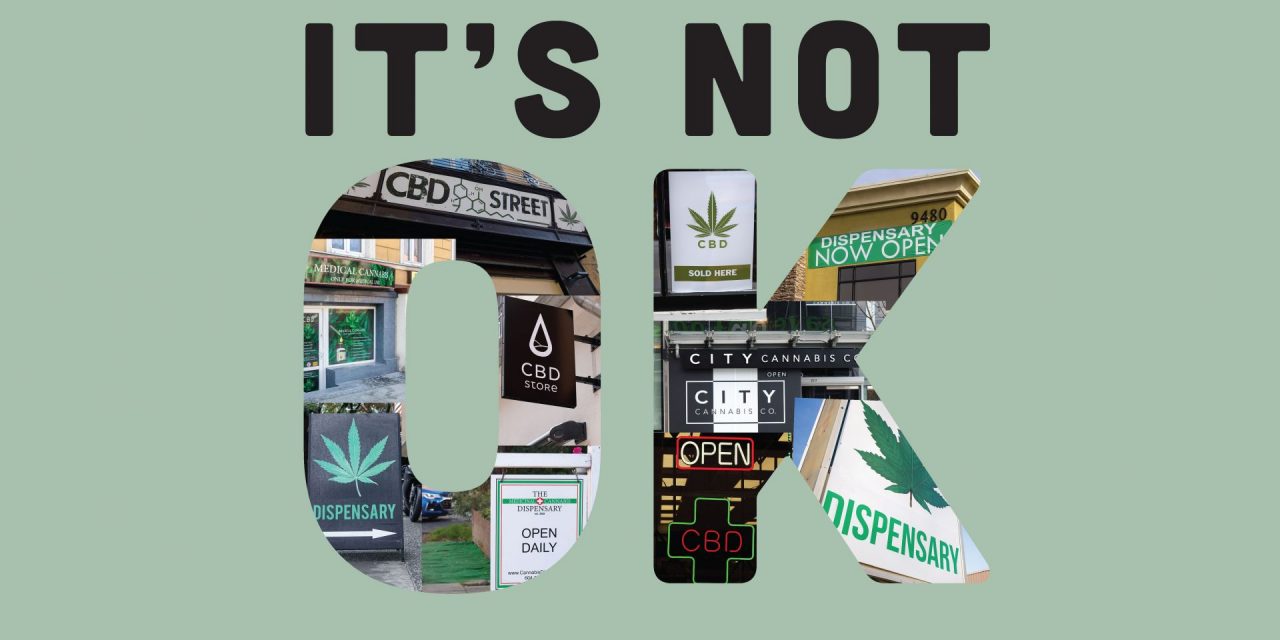U.S. Interstate Highway 35 will forever be under construction. This reality was reinforced to me by my drive back from Falls Creek this summer. My GPS, in its infinite wisdom, chose to send me up State Highway 77.
As I was driving through the multitude of small towns, I saw a steeple rising from the trees. As I got closer, I saw the familiar red brick building that dots the plains of Oklahoma. I love seeing older church buildings, so I slowed down to take a look and see if I could catch the church’s name.
I admit that I was shocked as I got closer. I noticed that the expected white sign had been replaced with a green cross. Immediately I thought to myself, “This church has gone to pot!”
If you drive through any town, city or metropolitan area in our state, your eyes will be barraged with marijuana dispensaries. If it weren’t so serious, the frequency of these store fronts would be humorous. How often have you seen a strip mall with multiple dispensaries in it?
This explosion happened following the approval of SQ 788 on June 26, 2018—a vote which Baptists sought to sound a warning. While understanding the potential value of medical marijuana, our previous executive director-treasurer, Hance Dilbeck, stated that this issue was a “major concern.” This concern is not just shared among religious leaders, but was spoken about by business leaders, law enforcement agencies and medical experts.
Those within the medical field identify the potential harmful effects resulting from the increase in potency. Since the 1970s, new production processes have been implemented which increase the THC (tetrahydrocannabinol, the chemical substance that creates the psychoactive effective) level in marijuana plants. THC levels have increased from 4 percent in the 1990s to more than 15 percent today.
The ease with which one can attain a license is alarming. There is no standard required to attain one, only a willing physician to write a recommendation (not even a prescription). This minimal standard has allowed the growth of this industry, a level of growth that outpaces all other states that allow any level of marijuana use, medical or recreational.
As of June of this year, Oklahoma had 1,936 dispensaries—more than California, which had 770. Oregon, Colorado and Washington—the states with the third, fourth and fifth most dispensaries—combined have only 1,860. There are more marijuana dispensaries than Baptist churches in Oklahoma.
What can we do? We must acknowledge that people are turning to marijuana for a reason. Perhaps that former church building in that small town along Highway 77 is more telling than we might think. The decline of the church has left a void. A void that causes boredom, anxiety and seeking a heightened experience.
People will attempt to fill that void with whatever they can as they look for hope, purpose and satisfaction. We know that only the Gospel of Jesus Christ fills that emptiness. We, as Christians, have the answer for this industry. Rather than getting involved with a dangerous substance, we can point people to salvation.
Yes, this law has failed us. However, law is always an external force. With all moral and ethical issues, the law may help, but true transformation is internal. Until a person experiences an internal transformation, he will continue to convince himself that what he is doing is working or will work. It is the nature of sin to convince people that destructive behaviors are helpful.
We, as the church, have something more to offer. Perhaps, in years to come, we will see new churches open where dispensaries have closed. Perhaps these churches will be filled with people who finally, by the grace of God, found the answer for the emptiness in their lives. This can and will happen as we confront our culture and lovingly engage with people to point them to the Savior!




